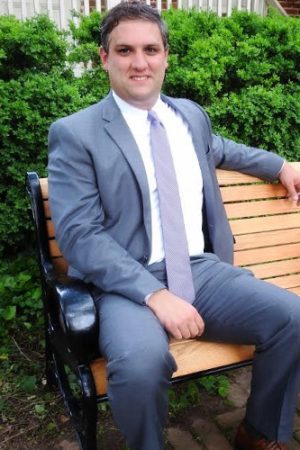Reid Wodicka

Reid Wodicka
Education:
Master of Public Administration – James Madison University
Research Interest:
Reid’s research interests revolve around urban policy and public service delivery in the local government setting.
Ph.D. Expected:
Fall 2014
What are your best memories about being a graduate student in the PPOL graduate program?
The camaraderie with other students and faculty & staff members was my favorite part of graduate school. I still confer with some of my colleagues from graduate school on various issues, as do several of my employees for their own graduate school experiences. Everyone was working hard and getting through their work, but everyone was so willing to help everyone else. I remember being tired and stressed a lot, but I remember feeling strong support from my peers and the faculty and staff.
What are the top 3 things you took away from the PPOL program?
The PPOL program has a very strong quantitative analysis requirement and, even though I’m not working in research, I use what I learned literally on an everyday basis – from designing data management solutions for Town government departments to using the research design and implementation tools that we learned to assess neighborhood conditions and develop future plans. I can contribute to the community in stronger way because I understand and can implement the analysis tools that I learned in graduate school, and as a result, I think I’m better at my job.
The economics component of the course requirements, though challenging, have also made me better at what I do. Instead of just knowing that local governments use property taxes, for instance, I now know why. Most importantly, I can explain that to policymakers and to my peers in other local government organizations.
In the same light, my courses in the urban and regional development track gave me insight into communities that I just simply didn’t have before. I give a weekly address to the Town Council and staff that outlines or discusses some aspect of the new and interesting things that we are doing as an organization. Almost every time, I reference something that I experienced in graduate school that has helped me shape my thinking on the subject.
In summary, I think that the Public Policy program at UNC Charlotte has helped me to become a more dynamic local government leader, someone who actually understands what we do and why we do it, and can develop solutions to problems that ouf community faces. This is all based on theory and research rather than shooting from the hip. I think that I probably could have lead the organization I lead without the PhD training, but I don’t think for a second I could’ve done it with the same success and ability to drive the organization forward without my experiences at UNC Charlotte. Without graduate school, I wouldn’t have been able to make the connection between theory and practice and wouldn’t have been evaluate a solution’s performance to nearly the same degree.
What advice would you give new students about how to succeed in graduate school?
Work REALLY hard, every day. There’s no substitute and there is no other needed advice. Of course, some of the courses are challenging, but none are impossible if you take the time to learn and become immersed in the material. Graduate school has to be your life for a few years.
Any suggestions or tips for job search and preparing for going on the job market?
I don’t work in academia, so I can only speak for people working “in practice”. I think the biggest concern is communicating how you will translate your PhD work into useful solutions to the organization’s needs. A lot of people see that PhD and assume that you are some fuzzy-headed academic with no practical skills. Instead, coming from this program you are armed with skills and knowledge that most people don’t have and can easily be translated into your work. You have to find a way to communicate that effectively. But at the same time, you also have the chops to think about things in the way a fuzzy-headed academic might – What is the big picture? What are the small components that make up the big picture? From understanding and knowing theory in your field to understanding the details of analysis, you can use your skills and knowledge to help solve public issues from a variety of concerns. Make sure to communicate that as you prepare for the job search.